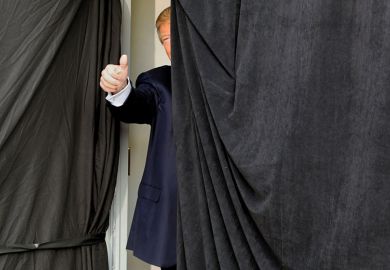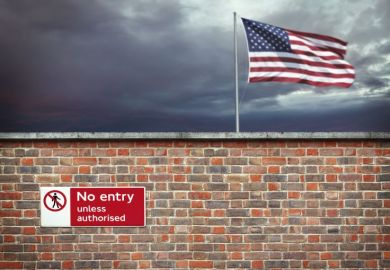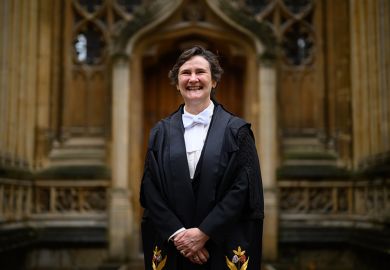In a recent letter to constituents, Nebraska senator Steve Erdman claimed that if the University of Nebraska-Lincoln hired a diversity director, it would result in a hostile campus environment for white, Christian, conservative male students.
“Every word spoken by white, Christian, conservative males at the school will be excruciatingly scrutinised against the backdrop of the new vice-chancellor’s extremist progressive world view,” asserted the Nebraska representative.
Racial, sexual, and gender minorities, in turn, would be undeservedly favoured, placing students with majority identities at a disadvantage, Erdman added.
“I believe individuals should be favoured in academia on the basis of their unique talents, abilities and aptitude for learning,” he concluded.
It is not an uncommon position among political conservatives that when universities place greater emphasis on equity and diversity, it will have a liberalising effect on the institution and a silencing effect on conservative students.
The issue has been discussed frequently over the past year in The Atlantic and The Washington Post. In July 2017, the Pew Research Center conducted a study with 2,504 adults on their views of major institutions in the country. They found that 58 per cent of Republicans and Republican-leaning independents believe that colleges and universities have a negative effect on the country, up from 45 per cent in 2016.
These figures stood in stark contrast to Democrat or Democrat-leaning participants, 72 per cent of whom said that colleges and universities have a positive effect on the country, a number that has fluctuated little over the last several years.
But is Senator Erdman correct that as a college or university takes steps to be more welcoming toward minority students, white, Christian, conservative male students will suffer as a result?
Not according to the Interfaith Diversity Experiences and Attitudes Longitudinal Survey (IDEALS), a national study across 122 institutions that tracks how and why students’ attitudes toward different groups change across four years in college.
The study is a joint venture between research teams at North Carolina State University and Ohio State University, led by co-principal investigators Alyssa Rockenbach and Matthew Mayhew.
Looking at student attitudes after one year in college, the study found that when white Christian conservative men perceive campus to be highly welcoming toward students of diverse backgrounds, the majority of these students feel safe to express their views and traditions on campus nonetheless.
Furthermore, the majority of these students rarely if ever feel silenced from sharing their experiences by prejudice and discrimination, and rarely if ever experience tense or hostile interactions on campus.

These findings complement previously released data from IDEALS showing that after one year in college, students’ appreciation for political liberals and political conservatives grew at the same rate (8 per cent), casting further doubt on the narrative that colleges and universities are systematically trying to undermine conservative beliefs and values.
Although incoming freshmen are the most politically divided in half a century, this does not necessarily mean that campus efforts to be more welcoming toward historically marginalised students are making campus life harder for students on the political right, and especially those who are white, Christian, and male.
On the contrary, IDEALS data suggest the opposite. It could be inferred that if white Christian conservative male students want their campuses to become safer places to express their worldview, and if they want to have fewer negative interactions with diverse peers on account of their beliefs, they should actually support the hiring of a diversity director, or any initiative that might make campus more welcoming for students of minority racial, sexual, and gender identities.
This paradox might come as a surprise to some, but research has been saying for some time that diverse campus environments tend to benefit all students.
The greater issue is political tribalism and the narratives that feed the fire. One of these is that universities which strive to welcome historically underrepresented students on campus will also necessarily be bent against majority students of conservative identities, as suggested by Senator Erdman.
While there have certainly been markers suggestive of an anti-conservative bias in some areas of higher education, the question here is whether welcoming minority students is making campuses less welcoming for white Christian politically conservative men.
The IDEALS data refute this claim. It may be time to re-evaluate the narrative that a supportive campus for minorities and a supportive campus for white, Christian, politically conservative male students are irreconcilable futures.
On the contrary, all groups should welcome moves to make both minorities and white male students feel safe and supported on campus.
Kevin Singer is a PhD student in higher education at North Carolina State University. Laura Dahl is a PhD candidate in the Higher Education and Student Affairs programme at Ohio State University. Matthew J. Mayhew is the William Ray and Marie Adamson Flesher Professor of Educational Administration at Ohio State University. Alyssa N. Rockenbach is professor of higher education at North Carolina State University.
Register to continue
Why register?
- Registration is free and only takes a moment
- Once registered, you can read 3 articles a month
- Sign up for our newsletter
Subscribe
Or subscribe for unlimited access to:
- Unlimited access to news, views, insights & reviews
- Digital editions
- Digital access to THE’s university and college rankings analysis
Already registered or a current subscriber? Login








